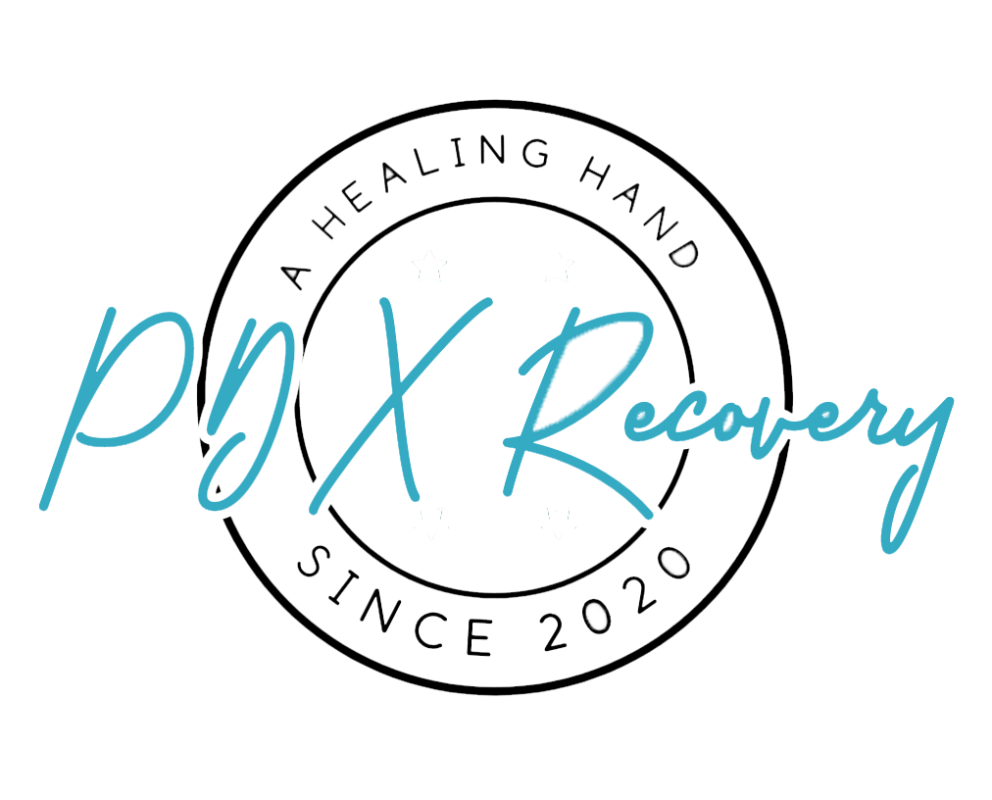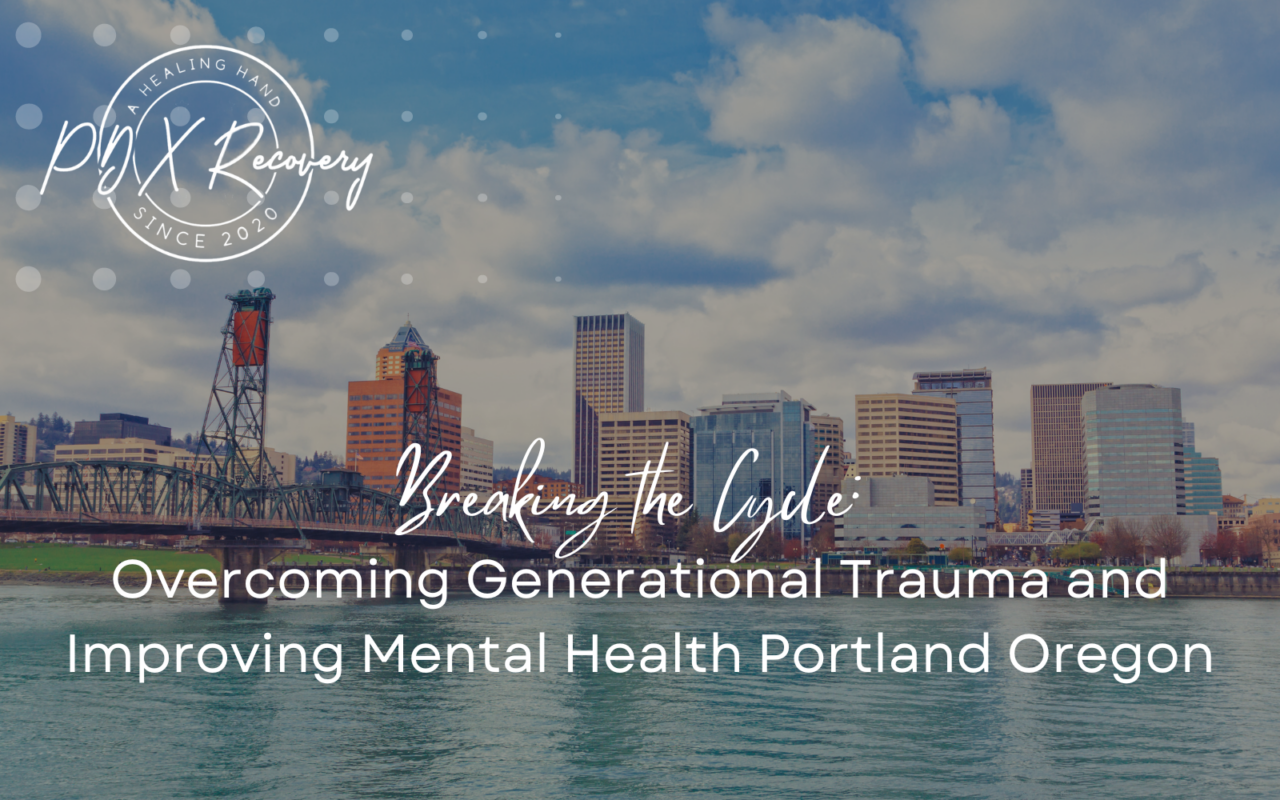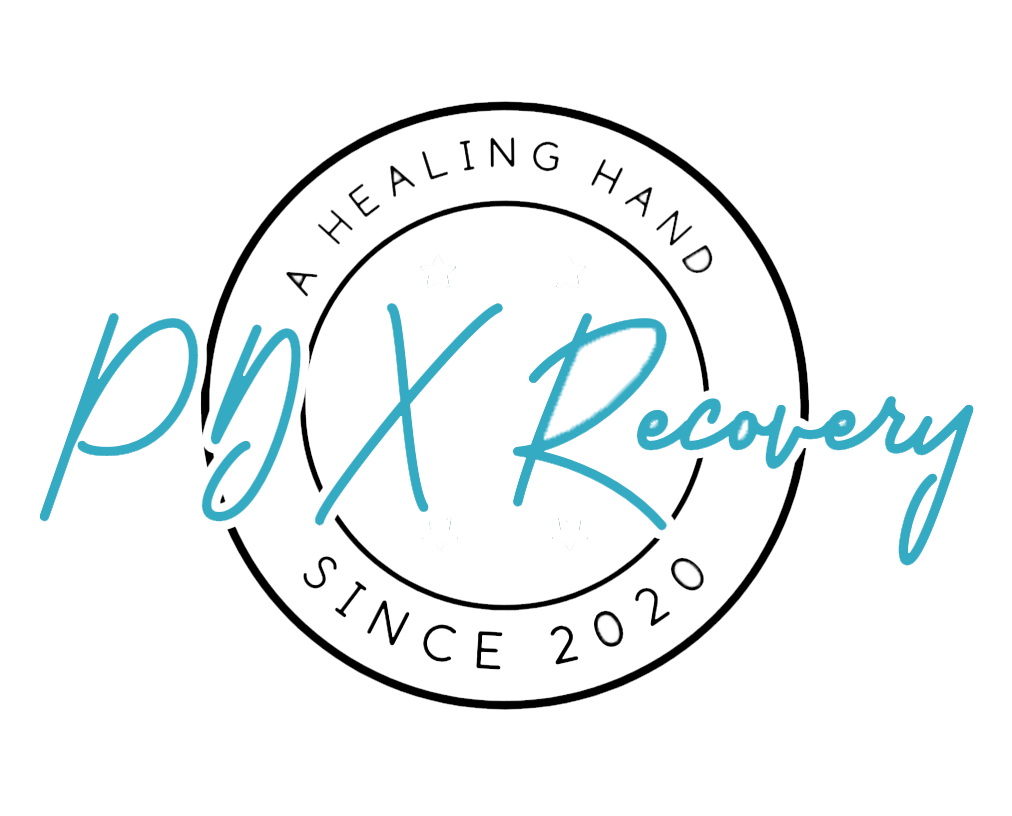In the beautiful and vibrant city of Portland, Oregon, a silent struggle often persists within families and communities: the battle against generational trauma. This invisible burden can impact mental health, relationships, and overall well-being, but hope is not lost. At PDX Recovery, we are dedicated to helping individuals break the cycle of generational trauma and achieve lasting mental health Portland Oregon. This article delves into the nature of generational trauma, its impact on mental health, and effective strategies for overcoming it, all while highlighting the resources available in Portland, Oregon.
Understanding Generational Trauma
Generational trauma, also known as intergenerational or transgenerational trauma, refers to the psychological and emotional wounds passed down from one generation to the next. This type of trauma can originate from various sources, such as war, genocide, slavery, abuse, and neglect. Even though the original traumatic event may have occurred decades or centuries ago, its effects can still be felt by descendants.
The Impact on Mental Health Portland Oregon
The effects of generational trauma on mental health are profound and far-reaching. Individuals may experience anxiety, depression, post-traumatic stress disorder (PTSD), and other mental health conditions that affect their daily lives and overall well-being. These issues can manifest as difficulties in forming healthy relationships, low self-esteem, chronic stress, and trouble managing emotions. The psychological impact is often compounded by physical symptoms such as headaches, fatigue, and sleep disturbances. The cycle of trauma often continues unless intentional efforts are made to address and heal these deep-seated wounds through therapy, support groups, and other forms of intervention. Without proper intervention, the impact of generational trauma can persist across multiple generations, affecting families and communities on a broad scale.
Recognizing the Signs of Generational Trauma
Understanding the signs of generational trauma is the first step toward healing. Symptoms can include recurring negative patterns in relationships, pervasive feelings of guilt or shame, emotional numbness, and a sense of hopelessness. These patterns often trace back through multiple generations, affecting family dynamics and individual behaviors. Recognizing these signs allows individuals to seek the necessary help and support to begin their healing journey, breaking the cycle for future generations.
Breaking the Cycle of Trauma
Breaking the cycle of generational trauma requires a multifaceted approach that includes therapy, community support, and personal resilience. Here are some effective strategies for overcoming generational trauma and improving mental health Portland Oregon. The journey is often long and challenging, but with the right resources and support, significant progress can be made.
Therapeutic Interventions
Therapy is a powerful tool for addressing generational trauma. Various therapeutic approaches can help individuals process and heal from deep-seated wounds. Engaging with a therapist who understands the complexities of generational trauma can make a profound difference in one’s healing journey.
Cognitive Behavioral Therapy (CBT)
CBT is a widely used therapeutic approach that helps individuals identify and change negative thought patterns and behaviors. By working with a trained therapist, individuals can develop healthier ways of thinking and coping with stress. This therapy can empower individuals to break free from the cognitive distortions that often perpetuate trauma across generations.
Eye Movement Desensitization and Reprocessing (EMDR)
EMDR is a specialized therapy designed to help individuals process and resolve traumatic memories. This approach has proven effective in reducing the symptoms of PTSD and other trauma-related conditions. Through guided eye movements or other forms of bilateral stimulation, individuals can reprocess traumatic memories in a way that reduces their emotional charge.
Trauma-Informed Therapy
Trauma-informed therapy recognizes the pervasive impact of trauma and integrates this understanding into the therapeutic process. This approach prioritizes safety, trust, and empowerment, creating a supportive environment for healing. Therapists trained in trauma-informed care are adept at creating spaces where individuals feel understood and validated.
Family Therapy
Family therapy can be instrumental in addressing generational trauma, as it involves all family members in the healing process. By working together, families can break negative patterns and build healthier relationships. This collaborative approach helps families understand the intergenerational impact of trauma and foster a more supportive home environment.
Community Support
Community support plays a crucial role in overcoming generational trauma. In Portland, there are numerous resources and organizations dedicated to supporting mental health and wellness. These community resources provide a network of support that can help individuals feel less isolated in their struggles.
Support Groups
Support groups provide a safe space for individuals to share their experiences and connect with others who are going through similar struggles. These groups offer emotional support, practical advice, and a sense of community. Being part of a support group can significantly reduce feelings of isolation and offer new perspectives on healing.
Personal Resilience
Building personal resilience is essential for overcoming generational trauma. This involves developing healthy coping mechanisms, nurturing self-compassion, and cultivating a positive mindset. Resilience is not just about bouncing back, but also about growing and finding meaning in adversity.
Mindfulness and Meditation
Mindfulness and meditation practices can help individuals manage stress, increase self-awareness, and promote emotional healing. These practices encourage present-moment awareness and acceptance, which are crucial for overcoming trauma. Regular practice of mindfulness can lead to greater emotional regulation and reduced anxiety.
Exercise and Physical Activity
Regular exercise is beneficial for both physical and mental health Portland Oregon. Physical activity releases endorphins, reduces stress, and improves mood, making it an effective tool for managing the effects of trauma. Activities such as yoga, running, or even walking can provide a significant boost to emotional well-being.
Healthy Lifestyle Choices
Making healthy lifestyle choices, such as maintaining a balanced diet, getting adequate sleep, and avoiding substances that can exacerbate mental health issues, is vital for overall well-being. Good nutrition and proper rest can enhance one’s capacity to cope with stress and trauma, supporting the healing process.
Together, these strategies form a comprehensive approach to addressing and healing from generational trauma. By recognizing the signs, seeking therapy, leveraging community support, and building personal resilience, individuals can pave the way for a healthier and more hopeful future.
Steps to Healing
1. Acknowledge and Validate Trauma
Importance of Acknowledgment
Recognizing generational trauma as a valid experience is crucial for healing. It’s essential to understand that trauma can be passed down through generations, affecting the mental and emotional well-being of descendants. By acknowledging the deep-rooted impacts of generational trauma, we validate the experiences of those who have endured it. This validation is not just about recognizing pain but also about understanding its origins and effects. When trauma survivors feel seen and understood, it paves the way for effective therapy and support, allowing them to begin their healing journey with a sense of solidarity and hope.
Dangers of Minimizing Trauma
Ignoring or downplaying the impact of trauma can lead to feelings of isolation and hopelessness. When individuals feel that their pain is not taken seriously, they may internalize this invalidation, which can exacerbate feelings of worthlessness and depression. This lack of acknowledgment can deter them from seeking the help they need, thus perpetuating the cycle of suffering. Furthermore, minimizing trauma can prevent communities from addressing the root causes of generational pain, hindering collective healing and growth.
2. Seek Support from Mental Health Professionals
Importance of Therapy
Professional mental health support, including therapy and counseling, can provide individuals with the tools and strategies needed to process and heal from generational trauma. Therapists are trained to offer a safe space for individuals to explore their emotions, understand their trauma, and develop coping mechanisms. Therapy can help break the cycle of trauma by addressing both its psychological and emotional impacts. Moreover, mental health professionals can guide individuals through personalized healing plans, offering support and encouragement throughout the process.
3. Cultivate Resilience Through Community Connection
Role of Community Support
Strong community bonds provide essential emotional and practical support, creating a network of resilience that helps individuals overcome trauma. Communities can offer a sense of belonging and understanding, which is vital for healing. When individuals come together to share their experiences and support one another, it fosters a collective strength that can withstand the impacts of trauma. Community activities and support groups can also serve as platforms for sharing resources, offering encouragement, and building a united front against the effects of generational trauma.
4. Practice Self-Care and Mindfulness
Importance of Self-Care
Self-care practices help individuals manage stress, foster emotional well-being, and build resilience against the effects of trauma. Prioritizing self-care means taking intentional steps to nurture one’s physical, emotional, and mental health. It involves recognizing personal needs and taking proactive measures to address them. By engaging in self-care, individuals can replenish their energy, improve their mood, and enhance their overall quality of life, making it easier to cope with the challenges posed by generational trauma.
Self-Care Practices
Incorporating activities like yoga, meditation, and journaling into daily routines can promote relaxation, self-awareness, and emotional regulation. Yoga helps to release physical tension and improve flexibility, while meditation encourages a calm and focused mind. Journaling provides an outlet for expressing emotions and reflecting on personal experiences. Together, these practices can create a holistic approach to self-care, supporting both mental and emotional health.
5. Educate Yourself and Others on Generational Trauma
Importance of Education
Education about generational trauma empowers individuals with knowledge, reduces stigma, and fosters greater empathy and support within communities. Understanding the historical and cultural contexts of trauma can shed light on its pervasive effects and help individuals connect their experiences with larger societal patterns. Educating oneself and others about generational trauma promotes awareness and dialogue, which are crucial for breaking the cycle of pain and fostering a supportive environment for healing. This knowledge can also drive advocacy and policy changes aimed at addressing the root causes of generational trauma and promoting collective well-being.
PDX Recovery
PDX Recovery is dedicated to providing comprehensive services for mental health Portland Oregon. Our team of experienced professionals offers therapy, support groups, and educational workshops to help individuals heal from trauma and achieve lasting wellness. We specialize in personalized care, ensuring each client receives tailored treatment plans designed to meet their unique needs. Our state-of-the-art facility provides a safe and welcoming environment where clients can focus on their recovery journey. In addition to trauma recovery, we address a wide range of mental health issues, including anxiety, depression, and substance abuse. At PDX Recovery, we believe in the power of community and holistic healing, striving to empower individuals to lead healthier, more fulfilling lives.
Mental Health Portland Oregon: A Community Effort
Improving mental health Portland Oregon, is a community effort that requires collaboration and support from various sectors. By working together, individuals, families, organizations, and communities can create a more supportive environment for mental health and wellness.
Educational Initiatives
Educational initiatives aimed at raising awareness about mental health and trauma are crucial for reducing stigma and promoting understanding. Schools, workplaces, and community organizations can play a vital role in these efforts.
Policy Advocacy
Advocating for policies that support mental health services and resources is essential for creating lasting change. This includes ensuring access to affordable mental health care, funding for support programs, and protections for individuals affected by trauma.
Building Resilient Communities
Building resilient communities involves fostering connections, promoting inclusivity, and creating safe spaces for individuals to heal and thrive. Community events, support networks, and shared resources contribute to this resilience.
FAQs
What is generational trauma? Generational trauma, or intergenerational trauma, refers to the transmission of trauma from one generation to the next. It can result from various sources, including abuse, war, and discrimination, and affects mental health and well-being.
How can I recognize signs of generational trauma? Signs of generational trauma include recurring negative patterns in relationships, feelings of guilt or shame, emotional numbness, and chronic stress. Recognizing these signs is the first step toward seeking help and healing.
What types of therapy are effective for generational trauma? Effective therapies for generational trauma include Cognitive Behavioral Therapy (CBT), Eye Movement Desensitization and Reprocessing (EMDR), trauma-informed therapy, and family therapy. These approaches help individuals process and heal from traumatic experiences.
What community resources are available in Portland, Oregon, for mental health support? Portland offers numerous resources for mental health support, including PDX Recovery, Cascadia Behavioral Healthcare, The Dougy Center, and Lines for Life. These organizations provide therapy, support groups, and crisis intervention services.
How can mindfulness and meditation help with trauma recovery? Mindfulness and meditation practices promote present-moment awareness and acceptance, which are crucial for managing stress and emotional healing. These practices help individuals increase self-awareness and develop healthy coping mechanisms.
What role do community support groups play in overcoming generational trauma? Community support groups provide a safe space for individuals to share their experiences, connect with others, and receive emotional support. These groups offer practical advice and foster a sense of community, which is essential for healing.
Mental Health Portland Oregon
Breaking the cycle of generational trauma and improving mental health Portland Oregon, is a challenging but achievable goal. Through therapeutic interventions, community support, and personal resilience, individuals can overcome the deep-seated wounds of the past and build a brighter future. PDX Recovery is committed to supporting this journey, offering the resources and guidance needed for lasting healing and wellness. Together, we can create a healthier, more resilient community, free from the burdens of generational trauma. For more information visit our website https://pdx-recovery.com/ or call us at (971) 256-9087.







